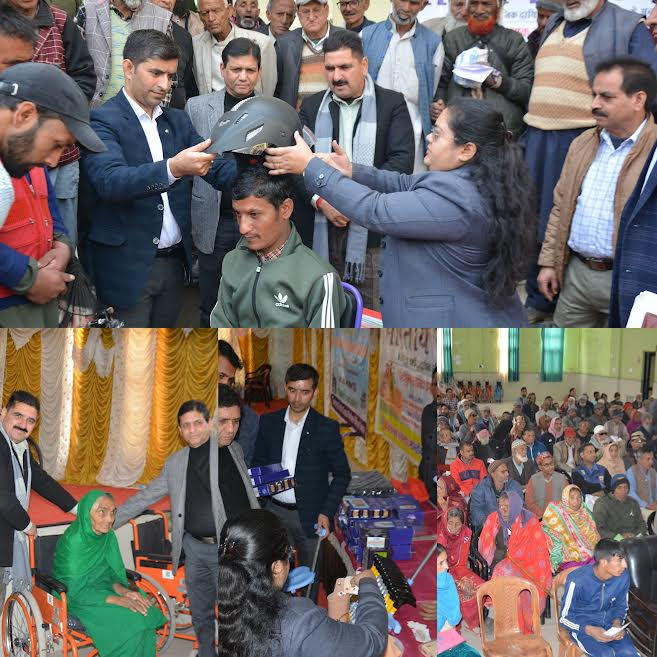DOGRA HERALD BUREAU
DODA, Dec 6
The 4- day distribution camp organized by the State Bank of India (SBI) under the Corporate Social Responsibility (CSR) initiative concluded today with extending free aids and assistive devices to 176 Divyangjans (Persons with Disabilities) in Doda district. The event, organized in collaboration with the Artificial Limbs Manufacturing Corporation of India (ALIMCO) from its Mohali unit, spanned from December 3 to December 6, 2024.
ALIMCO operates under the Department of Empowerment of Persons with Disabilities (DEPwD), Ministry of Social Justice and Empowerment (MoSJE), Government of India, and worked closely with the District Administration and the Social Welfare Department of Doda to implement this initiative.
A total of 393 aids and assistive devices worth ?24.49 lakh were distributed among the identified beneficiaries. The devices included 6 joystick wheelchairs, 7 motorized tricycles, 1 tricycle, 43 wheelchairs, 45 walking sticks, 14 crutches, 96 hearing aids, 2 smartphones, 2 braille kits, 17 Sugamya canes, 9 rollators, 3 CP chairs, 4 teaching and learning material (TLM) kits, 32 silicon foam cushions, 23 LS belts, 60 knee braces, and 29 artificial limbs and calipers. The selection and registration of beneficiaries were completed in November 2024 by ALIMCO, with support from local administration and social welfare officials.
The camp aimed to empower and uplift the Divyangjan community, ensuring they have access to essential mobility aids and assistive devices to enhance their quality of life. It was supported by representatives of the district administration, including key officials from the Social Welfare Department and Ms. Kanika Mehta, Junior Manager from ALIMCO. The comprehensive initiative underlines the commitment of SBI and its partners to the social and economic inclusion of Persons with Disabilities.
The event concluded successfully with heartfelt appreciation from beneficiaries and their families, emphasizing the transformative impact of such initiatives. It also highlighted the importance of collaboration between public and private sectors to address the needs of vulnerable communities effectively.



























